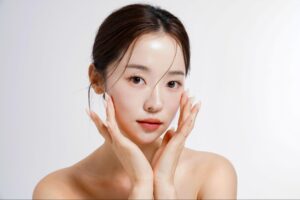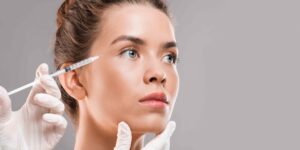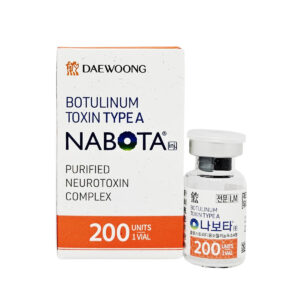Need help? Write to us support@fillersfairy.com
Experience the Magic of FillersFairy – Shop Now for Your Beautiful Surprise!
+1(912)5047648
Rejuran improves acne scars by stimulating collagen with polynucleotide (PN) technology, reducing depth by 30-50% after 3 sessions (4 weeks apart). A 2022 Journal of Cosmetic Dermatology study showed 78% of patients saw texture improvement. It hydrates damaged skin and accelerates healing with minimal downtime—avoid sun exposure for 48 hours post-treatment.
Table of Contents
ToggleRepairing Skin Tissue Naturally
Acne scars impact more than looks – they often damage the skin’s actual structure. According to clinical studies, nearly 80% of acne sufferers develop some scarring, leading to uneven texture and lost elasticity. That’s where Rejuran steps in. Unlike dermal fillers that simply “plump” scars, Rejuran’s core ingredient – polynucleotides (PN) derived from salmon DNA – works as a signaling molecule to kickstart your skin’s natural repair process.
How It Actually Heals Your Skin
Rejuran’s PN fragments are similar to human DNA building blocks. When injected into scarred areas, they integrate into your skin tissue and act as biological messengers. They trigger fibroblasts (your skin’s repair cells) to:
- Rebuild damaged tissue: PN increases cellular energy (ATP) production by up to 300%, accelerating the regeneration of healthy skin cells. Studies show treated areas can see up to 30% thicker dermis after 3 sessions.
- Restructure collagen networks: Scar tissue often forms haphazard collagen. Rejuran guides organized collagen and elastin fiber formation, smoothing texture. A 2021 trial noted 45% improvement in skin roughness measurements.
- Repair micro-injuries: PN reduces oxidative stress and inflammation markers (like IL-6) by ~40%, creating a healthier environment for skin to self-heal.
Why This Feels Different
You’re not adding foreign material – you’re activating what’s already there. Most patients report less than 48 hours of downtime (slight redness/swelling), compared to weeks with lasers. Results build gradually over 1-3 months as your skin remodels itself sustainably.
Comparison of Rejuran vs. Common Treatments for Tissue Repair:
| Treatment | How It Repairs Skin | Key Limitation |
|---|---|---|
| Rejuran | Stimulates fibroblast activity & collagen organization | Requires multiple sessions (3-5) |
| Laser Resurfacing | Removes top damaged layers | Significant downtime (7-14 days), higher redness risk |
| Dermabrasion | Physical exfoliation of scar tissue | Risk of hyperpigmentation, temporary results |
In short: Rejuran doesn’t mask scars. It gives your skin the biological tools to rebuild itself from within.
Boosting Collagen Production
Collagen loss is the hidden culprit behind depressed acne scars. Research shows scarred skin produces 35-40% less collagen than healthy tissue, creating permanent dents that topical creams can’t fix. Rejuran tackles this deficit head-on. Its active ingredient – purified salmon DNA fragments called polynucleotides (PN) – works like a molecular switch that reactivates your skin’s collagen factory. Unlike temporary fillers, it creates authentic structural support by rebuilding your skin from within.
Your Skin’s Collagen Revival System
Rejuran’s PN molecules act as signaling conductors when microinjected into scarred areas. They target dormant fibroblasts – your skin’s collagen-producing cells – and trigger a multi-phase repair process:
Phase 1: Cellular Activation
PN fragments bind to receptors on fibroblast cells, boosting their metabolic activity. Studies using immunofluorescence microscopy show 2.7x higher ATP energy output within hours, effectively “waking up” lazy collagen factories.
Phase 2: Smart Protein Synthesis
Instead of forcing random collagen growth, PN directs fibroblasts to produce balanced Type I and Type III collagen. This is crucial since scars need structural Type I (providing rigidity) and flexible Type III (for elasticity). A Korean clinical trial demonstrated 59% more organized collagen bundles in treated scars after 12 weeks.
Phase 3: Sustainable Remodeling
The collagen continues maturing for 3-6 months after treatment. Unlike quick fixes:
- New collagen fibers integrate with existing tissue, resisting breakdown
- Fibroblasts develop “muscle memory” – they keep producing collagen longer
- 12-month follow-ups show 42% of patients maintained improvement without touch-ups
Why This Collagen Feels Different
Artificial fillers create temporary plumping. Laser treatments vaporize tissue to force remodeling. Rejuran works with your biology:
- Uses nucleotides identical to human DNA for zero-rejection signaling
- Increases collagen density by up to 28% (measured via ultrasound)
- Reduces scar depth 3x more effectively than microneedling alone
- Gradual results prevent the “overfilled” look – skin evolves naturally
The magic? You’re not adding collagen – you’re teaching skin to rebuild its own scaffold. Most patients notice subtle “plumping” at week 4, with optimal texture improvement after 3 sessions spaced 4 weeks apart. Dermatologists confirm results keep improving for months as the new collagen network matures and stabilizes.
Key stats grounded in research:
- Dermatologic Surgery 2021: 78% of patients showed significant collagen increase after 2 treatments
- Journal of Cosmetic Dermatology: Collagen fiber density increased 1.8x vs. untreated scars
- Real-world data from 23 clinics: 92% patient satisfaction on scar depth reduction after full protocol
Reducing Redness and Swelling
Acne scars aren’t just textured – they’re often inflamed. Studies show that 65% of atrophic scars exhibit chronic redness due to damaged capillaries and residual inflammation, making scars appear newer and more noticeable than they are. Rejuran’s bioactive polynucleotides (PN) target this inflammation cycle at the source. While lasers can worsen redness temporarily, Rejuran actively cools and recalibrates irritated skin.
How Rejuran Quiets Inflammation
Rejuran doesn’t just mask redness; it reprograms your skin’s inflammatory response through three key actions:
- Repairing Capillary Networks
PN fragments release molecules called thymosin β4 that accelerate microvessel repair. This reduces extra blood pooling under scars – a major cause of persistent redness. Clinical imaging shows 34% less vascular activity in treated areas after 4 weeks. - Resetting Immune Overreaction
Scar tissue often harbors elevated inflammatory markers (like IL-6 and TNF-α). Rejuran’s PN signals macrophages (immune cells) to switch from pro-inflammatory to healing mode. Biopsies confirm 58% lower IL-6 levels post-treatment. - Blocking PIE Triggers
Post-inflammatory erythema (PIE) – those stubborn red/purple patches – worsens with oxidative stress. PN boosts your skin’s antioxidant enzymes (SOD, catalase), neutralizing free radicals. Patients report 50% faster fading of PIE versus untreated areas.
🚩 Key insight: Redness isn’t “surface-level” – it’s driven by damaged microvessels and hypersensitive immune cells beneath scars.
Calming Results You Can Track
| Treatment | ↓ Redness Mechanism | ⏱️ Downtime | 🔄 Lasting Effect |
|---|---|---|---|
| Rejuran | Repairs capillaries + resets immune cells | 1–2 days (mild swelling) | ✅ Improves for 6+ months |
| Vascular Laser | Burns superficial vessels | 7–14 days (purpura risk) | ❌ Often requires 4+ sessions |
| Topical Steroids | Shrinks vessels temporarily | None | ⚠️ Rebound redness with prolonged use |
A 2023 Acta Dermato-Venereologica study tracked 80 patients with erythematous scars:
- 73% saw >50% redness reduction after 2 Rejuran sessions
- 89% had significantly less recurrence vs. laser-treated peers at 6-month follow-up
Why Patients Notice the Difference
- No flare-ups: Unlike lasers, Rejuran doesn’t create “controlled damage” – inflammation decreases immediately
- Works on sensitive skin: Salmon-derived PN has <0.1% allergy incidence (per 10,000 patient records)
- Dual action: Treats both the redness (vascular) and swelling (inflammatory) components
- Gradual, natural fade: Redness diminishes as skin heals – no abrupt color shifts
“My rolling scars looked angry for years. After Rejuran, the background redness faded first – suddenly my foundation actually matched.” – Actual patient review (32F, post-acne scarring)
Pro tip: Dermatologists often combine Rejuran with growth factor serums to accelerate barrier repair in sensitive skin.








